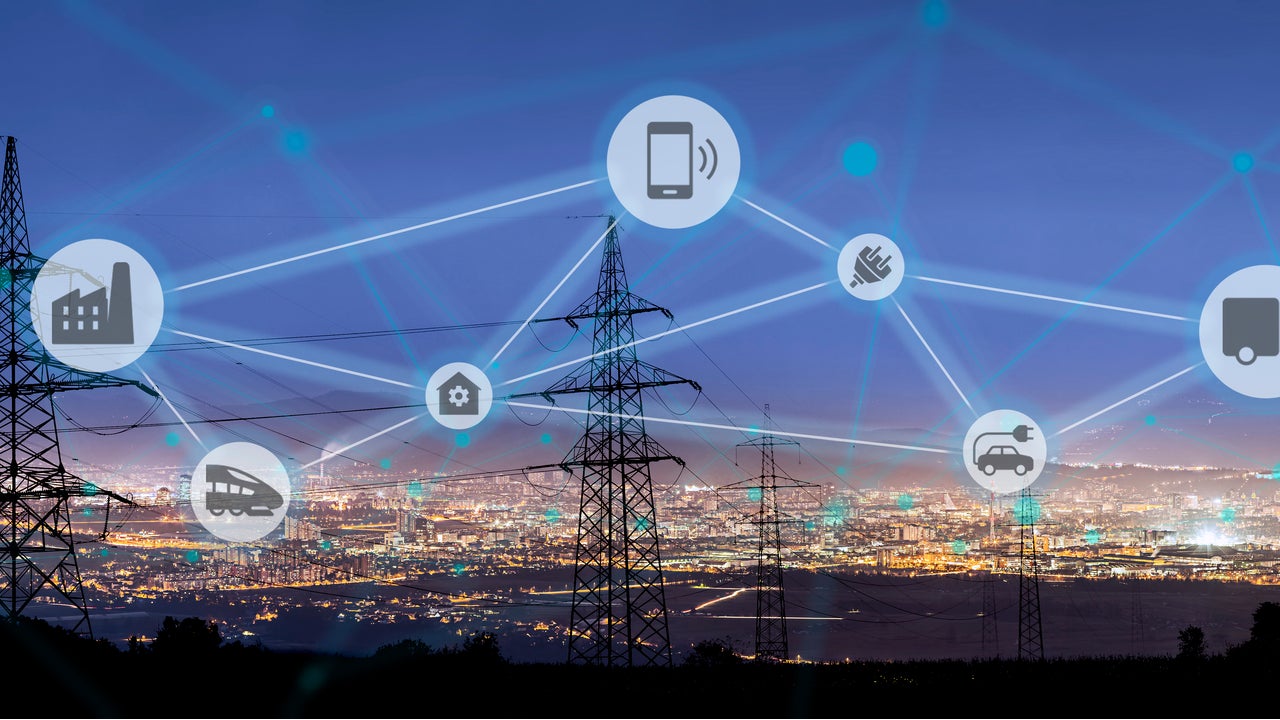Listed below are the key technology trends impacting the smart grid in power theme, as identified by GlobalData.
AI solutions
AI has an important role to play in understanding demand, and generating predictions from non-dispatchable resources such as wind and solar and from wholesale prices. It can also play an important role in understanding how changes to one part of the system would affect the system as a whole, while reducing the impact of outages and disconnections.
Make better use of smart grid Big Data
Power utilities own or can access huge volumes of data from smart metering systems, synchrophasors, smart homes and other sources of data. In addition, most of the power utilities infrastructure is becoming smarter and has built-in processing, connectivity, and sensing capabilities.
The increasing numbers of electric vehicles (EVs), smart home systems, and many more subsystems are likely to interface with utilities and provide them with potentially valuable data. The challenge for utilities, however, is to make that data useful and generate actionable insights from it. Analysing the data, however, is difficult due to the complexity of the problem, a challenge that can be addressed with the help of AI and machine learning (ML).
Utilities will gain access to potentially valuable and unique datasets with the proliferation of smart meters, smart grid systems, and other sources of data such as EVs. Benefiting from big data, however, is not straightforward and utilities need to deploy a range of new information technology (IT) solutions that allow them to collect, transport, secure, analyse and store the data in consistent ways. Smart grid big data solutions need to quickly make sense of data from multiple sources and in diverse formats.
Improved understanding of consumer behaviour
Improved exchange of real-time data and real-time monitoring of electricity consumption will allow suppliers to access more information on consumer behaviour in relation to electricity prices, along with their exact electricity requirements. It will help utilities plan generation and tariff systems aimed at providing maximum benefit to customers, while increasing their own profits.

US Tariffs are shifting - will you react or anticipate?
Don’t let policy changes catch you off guard. Stay proactive with real-time data and expert analysis.
By GlobalDataUnderstanding consumer behaviour will also enable utilities to generate the right type of billing information, which helps them to accelerate settlement of a vast number of transactions.
Smart grid increased customer engagement
Consumer engagement is needed to guarantee that energy consumption is managed effectively. The role of consumers in the smart grid is extremely important as they will be active in responding to requests from power retailers and distributors to cut down on their energy use during times of peak demand. It will be possible only if consumers can access their consumption and pricing data periodically.
Accessing this data becomes important as consumer appliances account for about 17% of energy consumed by the household and include appliances such as refrigerators, clothes washers and dryers. Most of the energy utilised by consumers at home goes into heating and cooling.
Reduced electricity theft via smart grid
A high percentage of electricity is lost through theft and other non-technical losses in developing countries such as Brazil and India. The implementation of smart grids includes the implementation of efficient energy management systems (EMSs), which will improve the monitoring of electricity transport through the real-time exchange of data, thereby improving the management of electricity and reduce electricity theft substantially.
Enhanced operational efficiency
Electricity is priced according to peak usage times and calculated using real-time information available to the customer in Demand Response (DR) programmes through the smart meter. The consumption of electricity during peak and off-peak hours will either decrease or increase once consumers start adjusting their consumption according to the electricity available, which will help to increase the efficiency of power plants.
Grid reliability and emergency system
The implementation of a microgrid, which can work as an isolated system or connect to the grid when required, enhances grid stability and reliability. The microgrid can work as a separate system and supply power in times of emergency, if there are any problems with the main grid. Such a system will be especially useful for hospitals, universities, and other institutions.
Increased incorporation of renewable energy
Smart grids facilitate the incorporation of renewable energy sources such as solar, wind and hydrogen into the power system in a stable manner, which will help many countries to attain their targets and meet domestic power requirements using clean sources of power.
This is an edited extract from the Smart Grid in Power – Thematic Research report produced by GlobalData Thematic Research.





